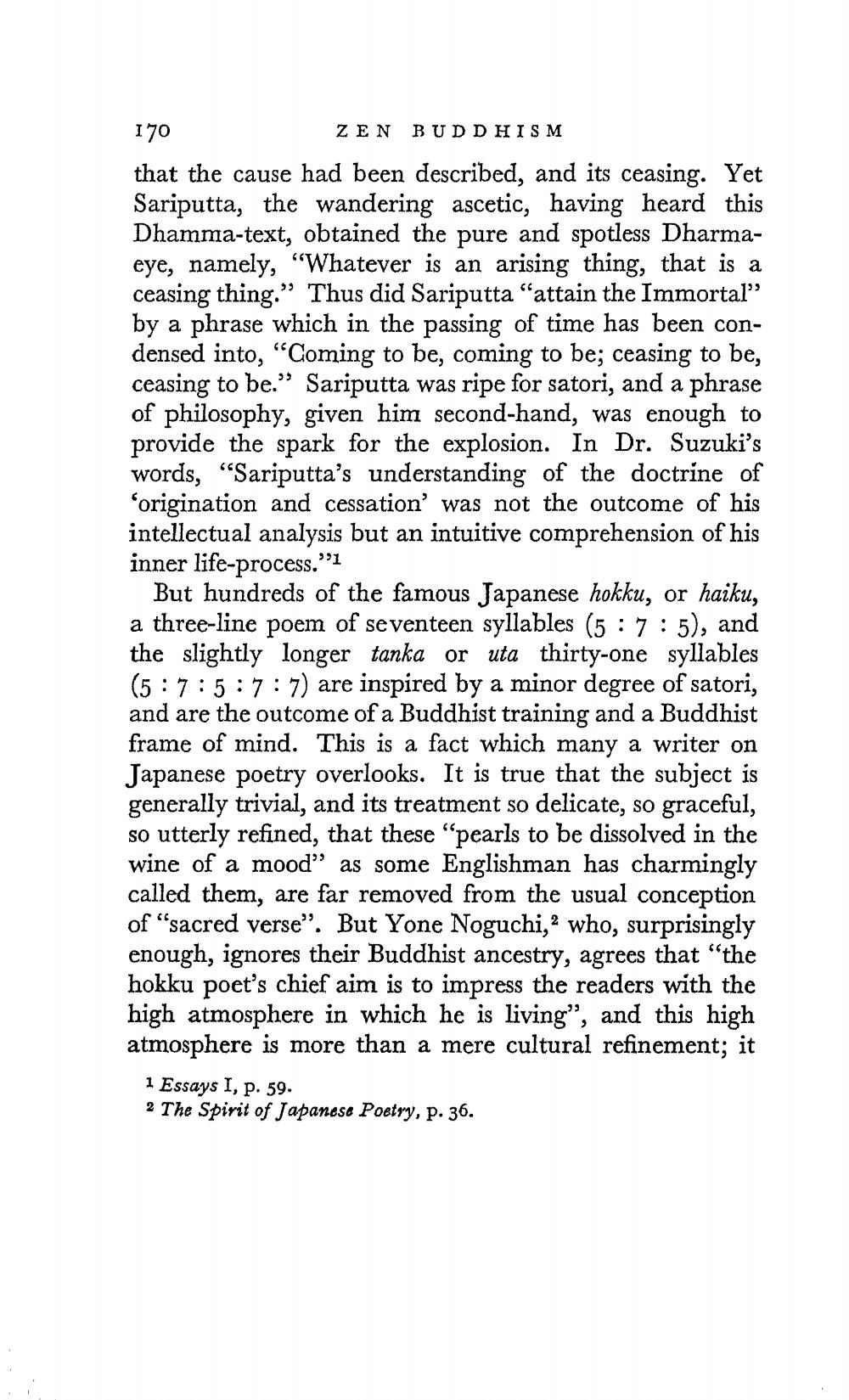________________
170
ZEN BUDDHISM
that the cause had been described, and its ceasing. Yet Sariputta, the wandering ascetic, having heard this Dhamma-text, obtained the pure and spotless Dharmaeye, namely, "Whatever is an arising thing, that is a ceasing thing." Thus did Sariputta "attain the Immortal" by a phrase which in the passing of time has been condensed into, "Coming to be, coming to be; ceasing to be, ceasing to be." Sariputta was ripe for satori, and a phrase of philosophy, given him second-hand, was enough to provide the spark for the explosion. In Dr. Suzuki's words, "Sariputta's understanding of the doctrine of 'origination and cessation' was not the outcome of his intellectual analysis but an intuitive comprehension of his inner life-process."1
But hundreds of the famous Japanese hokku, or haiku, a three-line poem of seventeen syllables (5 7: 5), and the slightly longer tanka or uta thirty-one syllables (57577) are inspired by a minor degree of satori, and are the outcome of a Buddhist training and a Buddhist frame of mind. This is a fact which many a writer on Japanese poetry overlooks. It is true that the subject is generally trivial, and its treatment so delicate, so graceful, so utterly refined, that these "pearls to be dissolved in the wine of a mood" as some Englishman has charmingly called them, are far removed from the usual conception of "sacred verse". But Yone Noguchi, who, surprisingly enough, ignores their Buddhist ancestry, agrees that "the hokku poet's chief aim is to impress the readers with the high atmosphere in which he is living", and this high atmosphere is more than a mere cultural refinement; it
2
1 Essays I, p. 59.
2 The Spirit of Japanese Poetry, p. 36.




